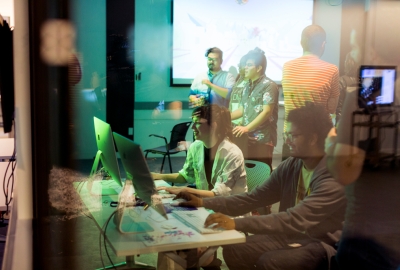This year-long mentored experience accompanies the post-residency first-year paid teaching assignment. The approach to mentoring will follow closely the practices of the New Teacher Center, which include a formative assessment system based on the Danielson Framework, self-directed inquiry and professional growth planning, attention to teaching artifacts like student work, videos of practice, and synchronous as well as asynchronous online protocols to guide collective learning conversations about how to improve participants' teaching practice. Participants, under the guidance of the NYU faculty mentor, will attempt to solve real-time problems, share resources, improve existing teaching tools and develop new ones, observe best practices, and learn from master teachers.
Course #
TCHL-GE 2416
Credits
Department
Teaching and Learning


